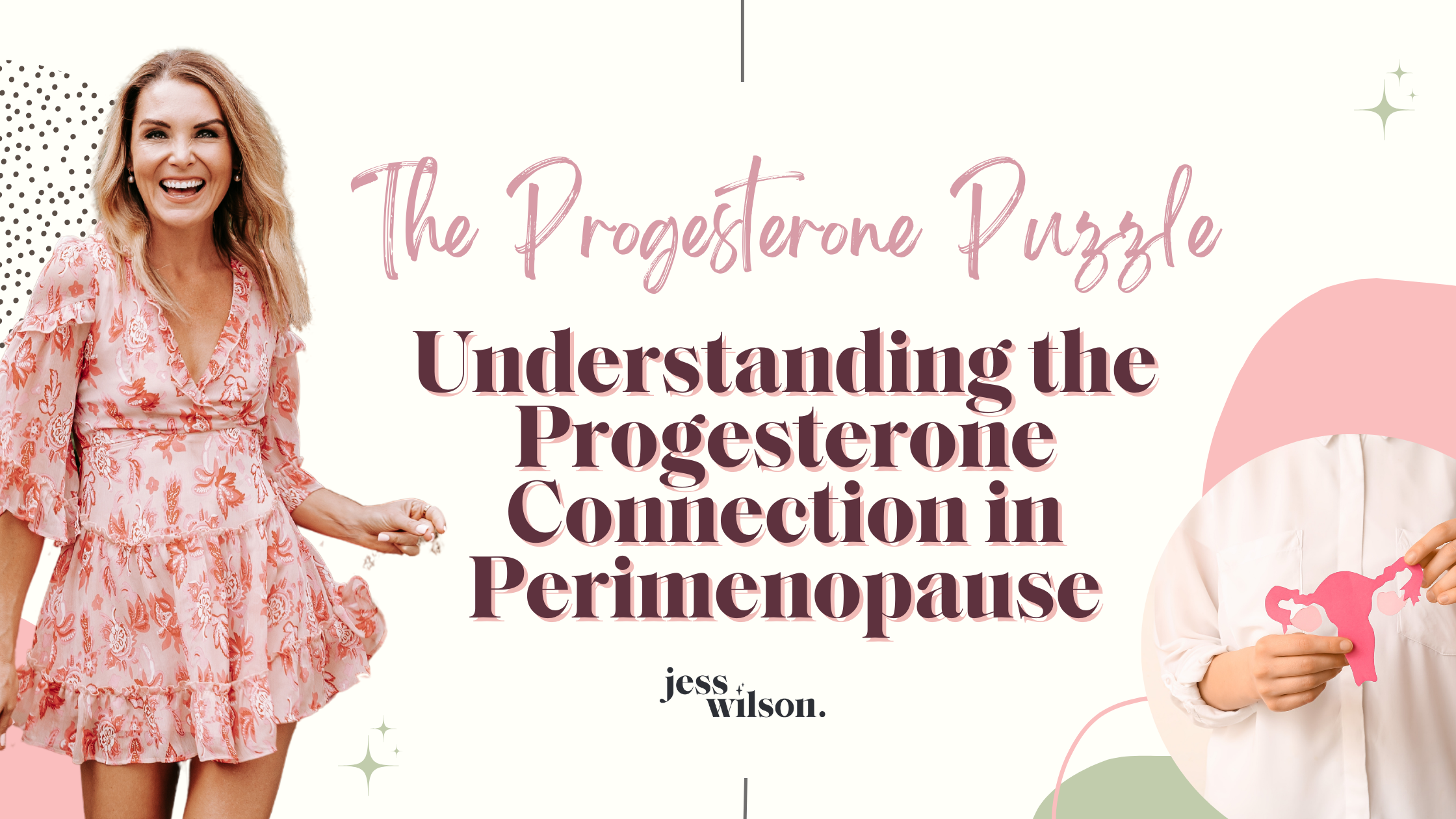Ah, Perimenopause, often referred to as the menopausal transition, is the stage in a woman’s reproductive life that occurs in the years leading up to menopause. It’s that phase where our bodies decide to throw a hormonal havoc, which can bring about mood swings that make us feel like we’re on a wild ride without a seatbelt.
One of the key players in this hormonal craziness is progesterone.
As our bodies gear up for the menopausal transition, progesterone levels can — sometimes go up, sometimes down, leaving our moods doing a little bit of cha-cha.
Ever found yourself tearing up at a cat food commercial? Yep, you can blame it on progesterone too!
Of course, I won’t leave you high and dry (Pun not intended!) I have a few tricks up my sleeve to help you gracefully navigate this phase, but before we dive into that. Let’s give Progesterone a little background.
What is Progesterone?
Progesterone is a hormone that plays a crucial role in the female reproductive system. It is primarily produced by the ovaries during the second half of the menstrual cycle, following the release of an egg during ovulation.
Now, how does it come into play during Perimenopause?
During perimenopause, estrogen and progesterone production by the ovaries diminishes gradually. This decline results in hormonal shifts, giving rise to a myriad of physical and emotional changes.
This hormone has a sneaky way of influencing neurotransmitters in our brain, affecting our mood, and turning us into an emotional rollercoaster.
The big question is…
How do we deal with these hormonal mood swings?
First on the list…
Nourishing Your Body
Progesterone loves nutrients, so load up on foods rich in vitamins B and C, magnesium, and zinc.
Consider incorporating these into your diet:
- Leafy greens
- Nuts
- Seeds
- Root vegetables
- Summer Fruits such as: Pineapple, Mango, Nectarines and Papaya

Move Your Body
Exercise isn’t just for the body, it’s a mood-lifter too! Engaging in regular physical activity has been shown to release endorphins, those delightful neurotransmitters that act as natural stress busters. Whether it’s a brisk walk, a dance session, or a yoga flow, even a short burst of movement can work wonders to tame those hormonal roller coaster feelings.
Progesterone though… she is NOT a fan of HIIT.
Slow down the pace and stick to steady state movement instead.
So, lace up those sneakers or roll out your yoga mat – your body and mind will thank you for it.

Mindful Moments
Despite the whirlwind of hormonal fluctuations, finding moments of peace is key.

Embrace mindfulness practices, whether through meditation, deep breathing exercises, or simply indulging in a few moments of tranquil solitude.
Mindfulness allows you to hit the pause button on the hustle and bustle of everyday life, providing your mind with the rest it deserves.
Fill in the gaps with Supplements
Navigating perimenopause with the right supplements can make a world of difference. Here’s a list of supplements you can take to address specific symptoms:

- Magnesium Supplements for Difficulty Sleeping:
- Consider magnesium supplements, as they may promote relaxation and contribute to a restful night’s sleep.
- Vitamin D & Vitamin B12 for Mood Swings:
- These vitamins play a role in neurotransmitter production, potentially helping to stabilize mood.
- Vitamin D & K Supplements for Bone Turnover:
- As estrogen levels decline during perimenopause, bone health becomes crucial. Ensure you’re getting enough Vitamin D for calcium absorption and consider Vitamin K supplements to support proper bone turnover.
- Vitamin E Supplements for Hot Flushes and Dryness:
- Hot flushes can be frustrating! Vitamin E might be your cooling agent. Studies suggest that Vitamin E supplements may help alleviate the intensity and frequency of hot flashes.
- Can also contribute to skin health and moisture. Consider adding them to your regimen to potentially ease this common perimenopausal symptom.
Remember, it’s always a MUST to consult a healthcare professional before incorporating supplements into your routine. You can Book a 1:1 with me and I can provide personalized advice based on your health history and individual needs.
CONCLUSION:
It’s essential to recognize that navigating perimenopause is a uniquely personal journey for every woman. Armed with an understanding of its signs and symptoms, women can empower themselves to effectively manage this transitional phase.
It’s a time marked by change and adaptation, symbolizing the natural progression towards a new and vibrant phase of life. Let’s come out of this phase thriving and flourishing.
Here’s to the beautiful evolution that perimenopause brings to each woman’s story! 🌷
Related Articles
- https://genomind.com/patients/how-hormones-affect-mood-for-women/
- https://www.healthline.com/nutrition/natural-digestive-enzymes
- https://myvitalhealthsolutions.com.au/blogs/how-to-detox-estrogen
- https://www.kernodle.com/obgyn_blog/
- https://betteryou.com/blogs/womens-health/best-supplements-for-perimenopause
- https://www.healthline.com/health/womens-health/estrogen-vs-progesterone#functions




